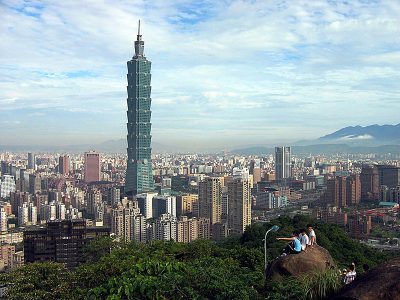Japan supports the attendance of Taiwan at WHO gathering: China and democracy
Noriko Watanabe and Lee Jay Walker
Modern Tokyo Times

China is an essential trading partner for Japan concerning exports and imports. At the same time, unlike thousands of years of positive history between China and Japan, nationalists in Japan since the Meiji Restoration (1868) have altered the regional dynamics. Therefore, Japan should act more diplomatically toward China and seek compromises where possible.
Japan and Taiwan relations are constructive and growing more deeper. However, for some members of the Liberal Democratic Party (LDP), this isn’t based on the democratic angle but the anti-China factor.
After all, Japan says little about Indonesia crushing West Papua – and the same applies to having favorable relations with Iran despite horrendous human rights issues. Similarly, Japan is on friendly terms with all the monarchies of the Gulf region. Hence, the democratic angle is nothing to do with the approach of America and Japan concerning their respective support of Taiwan.
Japan and other G-7 nations support Taiwan to attend the World Health Organization (WHO) annual meeting. China remains opposed because Taiwan is deemed an integral part of this nation according to political elites in Beijing. Of course, for Taiwan, this nation is an independent and thriving democracy.
Prime Minister Fumio Kishida said, “We have consistently insisted at the WHO that there should not be a geographical void in dealing with international health issues and have consistently supported Taiwan’s attendance as an observer.”
Kishida is saying “as an observer” concerning Taiwan. Hence, while China will refute this angle similar to past years, the reality is that democracy is more entrenched now in Taiwan than at any other period of its history. Equally, political elites in Washington – and encouraged by nationalists within the ruling LDP in Japan – seek to contain China. Therefore, China’s best weapon is greater diplomacy with other regional nations related to border disputes.
If China takes this approach and seeks accommodation with Taiwan that preserves the status quo, then hawks in Tokyo and Washington will be at a loss.
Kishida is more diplomatic towards China and the Russian Federation, unlike the administration of Yoshihide Suga. However, Shinzo Abe and Taro Aso (past leaders of Japan) have important influence within the ruling LDP and are pro-Taiwan – concerning their anti-China approach to regional affairs.
China needs greater statecraft to outwit the anti-China card in Washington and within the upper echelons of Australia, Japan, and the United Kingdom. Similarly, Kishida domestically needs a more open approach towards China and the Russian Federation while containing hawks within the ruling LDP.
Kishida’s approach to observer status for Taiwan is mild.

PLEASE SUPPORT MODERN TOKYO TIMES by DONATING
Modern Tokyo News is part of the Modern Tokyo Times group
DONATIONS to SUPPORT MODERN TOKYO TIMES – please pay PayPal and DONATE to sawakoart@gmail.com
http://moderntokyotimes.com Modern Tokyo Times – International News and Japan News
https://www.pinterest.co.uk/moderntokyotimes/ Modern Tokyo Times is now on PINTEREST
http://sawakoart.com – Sawako Utsumi personal website and Modern Tokyo Times artist
https://moderntokyonews.com Modern Tokyo News – Tokyo News and International News
PLEASE JOIN ON TWITTER
https://twitter.com/MTT_News Modern Tokyo Times